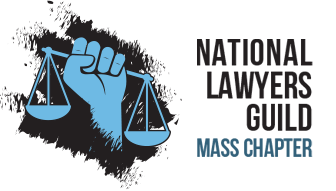A media campaign by the Palestine Advocacy Project has faced extraordinary pushback from the MBTA as well as private companies in the Boston area that appear determined to keep the organization’s messages from reaching the public.
The Palestine Advocacy Project, a group that creates public media and education campaigns about the Palestinian struggle, launched a mass media awareness campaign in 2013 to educate the public on how U.S. support for Israel has empowered Benjamin Netanyahu and his far-right administration to escalate the genocide in Gaza despite condemnation by the UN and the international community. The latest campaign was inspired in part by polling data that reflects the American public’s growing unease at the human rights abuses perpetrated by Israel against defenseless Palestinian civilians. The key to ending U.S. support for the Israeli military’s actions, according to organizer Richard Colbath-Hess, is education: when taxpayers understand how much of their hard-earned money goes to support the mass murder of innocents, they will put political pressure on elected officials to oppose this support.
The Palestine Advocacy Project’s current campaign is a collaboration with CAIR MA and is supported by Jewish Voice for Peace Boston and Massachusetts Peace Action, among other organizations. It includes mobile billboard trailers and door-to-door flyering as well as public actions. The mobile billboards bear statistics on Palestinian deaths and exhort Bostonians to support investment in their communities rather than Israeli weapons, while the flyers distributed on the MBTA draw attention to the contrast between the lack of funding for public transportation vs. the millions of dollars sent to the Israeli military to murder Palestinian children. The Project is currently raising money to amplify this message through targeted flyering at key MBTA stations, a modern electronic billboard truck, and targeted mailers that will ensure the unfiltered message reaches every doorstep in strategic districts.
The Palestine Advocacy Project uses mobile billboards and flyers strategically in order to bypass the censorship of messages in the Boston area. But even these modest, non-invasive tactics are apparently too controversial for the city’s decision-makers: the Palestine Advocacy Project has been banned from distributing flyers on the MBTA and the billboard companies that rent their mobile trailers to the group have been forced to either take down the advertisements or charge exorbitantly high fees. “Subway systems all over the country banned our ads under pressure from the Pro-Israeli lobby,” Colbath-Hess said. “Billboard companies either would not take our ads or they suddenly and inexplicably increased their prices to over 20,000 per month, which is much more than they charge for other ad campaigns.”
The group is disappointed but undeterred. “Our aim is stop the genocide in Gaza now and end U.S. funding for Israel,” Colbath-Hess said. “The government and private interests do not want Bostonians to receive this simple message. What better proof could there be that words are powerful?”



